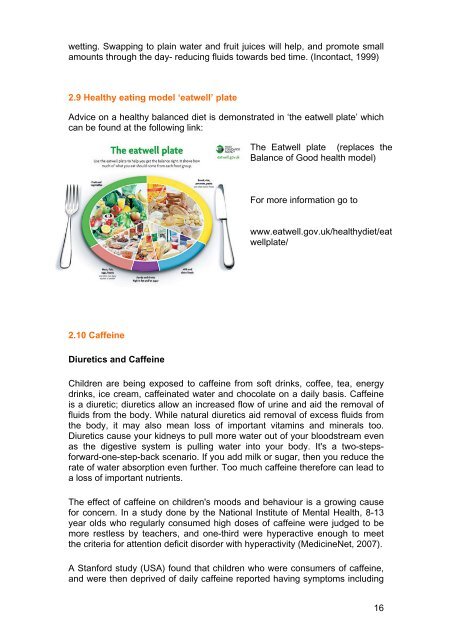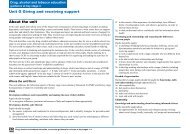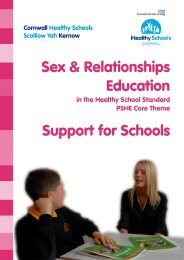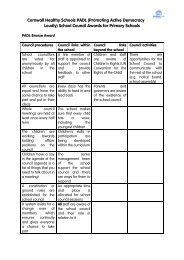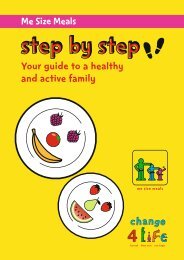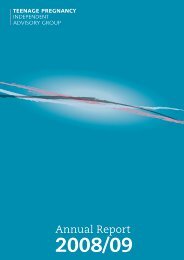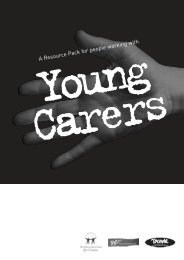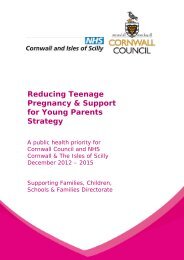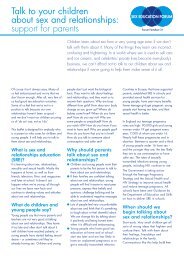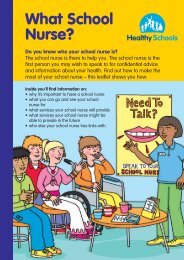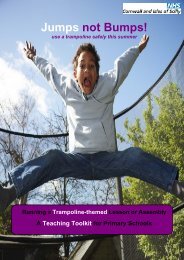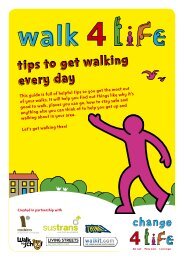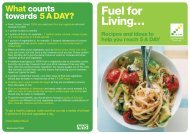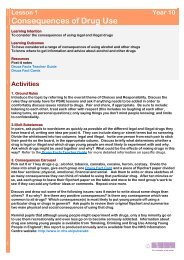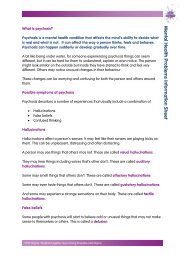School drinks policy guidance March 2010 - Cornwall Healthy Schools
School drinks policy guidance March 2010 - Cornwall Healthy Schools
School drinks policy guidance March 2010 - Cornwall Healthy Schools
Create successful ePaper yourself
Turn your PDF publications into a flip-book with our unique Google optimized e-Paper software.
wetting. Swapping to plain water and fruit juices will help, and promote small<br />
amounts through the day- reducing fluids towards bed time. (Incontact, 1999)<br />
2.9 <strong>Healthy</strong> eating model ‘eatwell’ plate<br />
Advice on a healthy balanced diet is demonstrated in ‘the eatwell plate’ which<br />
can be found at the following link:<br />
The Eatwell plate (replaces the<br />
Balance of Good health model)<br />
For more information go to<br />
www.eatwell.gov.uk/healthydiet/eat<br />
wellplate/<br />
2.10 Caffeine<br />
Diuretics and Caffeine<br />
Children are being exposed to caffeine from soft <strong>drinks</strong>, coffee, tea, energy<br />
<strong>drinks</strong>, ice cream, caffeinated water and chocolate on a daily basis. Caffeine<br />
is a diuretic; diuretics allow an increased flow of urine and aid the removal of<br />
fluids from the body. While natural diuretics aid removal of excess fluids from<br />
the body, it may also mean loss of important vitamins and minerals too.<br />
Diuretics cause your kidneys to pull more water out of your bloodstream even<br />
as the digestive system is pulling water into your body. It's a two-stepsforward-one-step-back<br />
scenario. If you add milk or sugar, then you reduce the<br />
rate of water absorption even further. Too much caffeine therefore can lead to<br />
a loss of important nutrients.<br />
The effect of caffeine on children's moods and behaviour is a growing cause<br />
for concern. In a study done by the National Institute of Mental Health, 8-13<br />
year olds who regularly consumed high doses of caffeine were judged to be<br />
more restless by teachers, and one-third were hyperactive enough to meet<br />
the criteria for attention deficit disorder with hyperactivity (MedicineNet, 2007).<br />
A Stanford study (USA) found that children who were consumers of caffeine,<br />
and were then deprived of daily caffeine reported having symptoms including<br />
16


